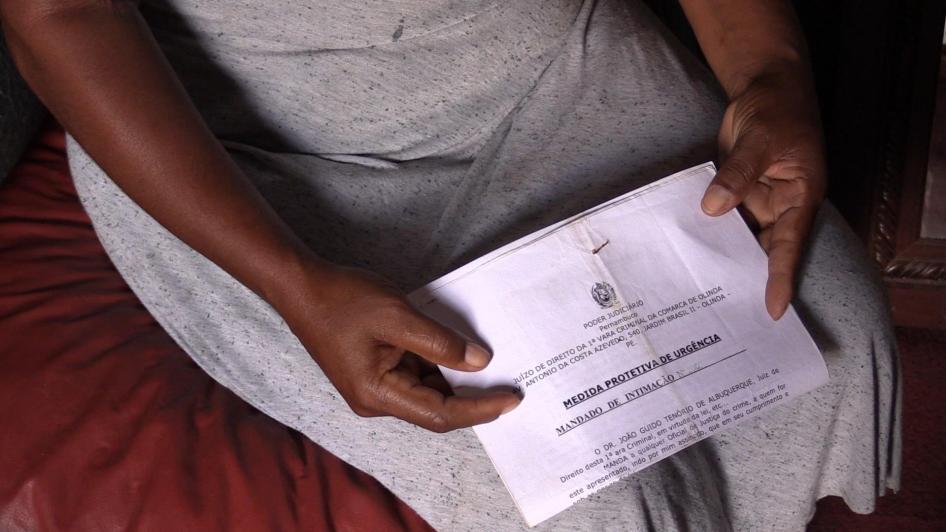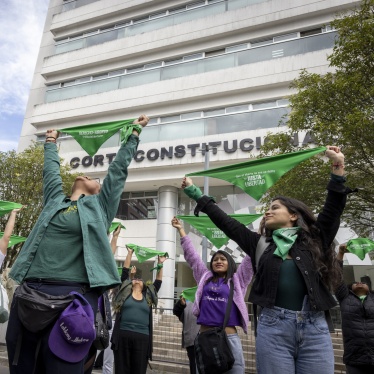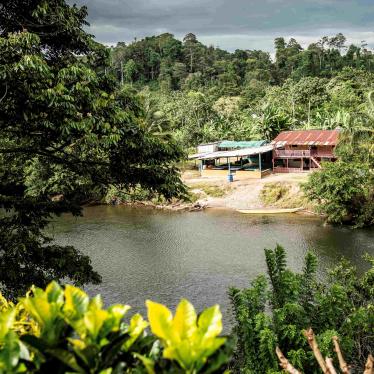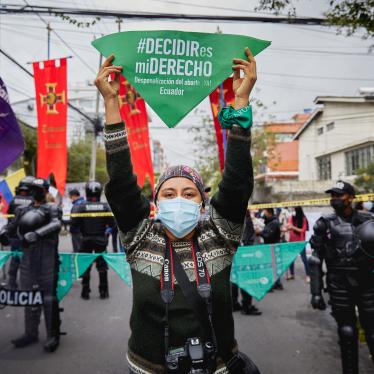Sixteen days of global activism against gender-based violence ends today, on Human Rights Day. The confluence is no coincidence. It is intended to emphasize that women’s rights are human rights. That may sound obvious now, but it has not always been so. Twenty-five years ago, Human Rights Watch published a report denouncing the acquittals in Brazil of men who killed their wives or girlfriends with the excuse of “defending their honor.”
Brazilian law has come a long way since then. Passage of the Maria da Penha law in 2006 was a milestone, establishing an array of measures to guarantee women’s rights, prevent violence, and ensure justice in the event of violence. One of the law’s main accomplishments was the creation of protective orders to provide a buffer by requiring a woman’s alleged abuser to stay away from her, though getting such an order and making sure it’s enforced remains more difficult than it should be.
Despite this progress, more than 4,700 women were killed in Brazil in 2013--the last year for which there is data--half of them by a relative, partner, or former partner. Many more suffered homicide attempts, rape, or beatings.
“Rita,” a 36-year-old woman we met in Recife in October, asked her partner to move out of the shack where they lived, after suffering years of physical abuse. The man came back at night and shot her three times. That was more than ten years ago, and the scar left by a bullet hole was still livid on her arm. Police talked to her once, Rita said, but never investigated the case seriously, as far as she has been able to determine.
After spending six months in the hospital recovering, Rita suffered violence from other partners. She obtained three protective orders, she said, but they were never enforced. When we met her, she was being threatened by a former boyfriend. “I am afraid of being killed,” she told us. “I know that if I am killed, the crime will remain unpunished. I have no value in the eyes of the justice system, because I am poor.”
Enforcement of protective orders is a major challenge in Brazil. Police visit women who have them in only a handful of municipalities. Yet they do help many women by sending a warning to aggressors that the justice system is looking.
The problem, for some women, is getting a protective order. Such was the case for Mariana Marcondes. A judge in São Paulo denied her a protective order, requiring more evidence than her own testimony of abuse by her husband, Chateaubriand Diniz. Mariana remained unprotected, even after Chateaubriand was convicted of threatening, beating, and confining her. On September 17, he stabbed her to death.
Police, prosecutors, and judges need better training to prevent, investigate and punish violence against women. And states and cities should improve the social and psychological services women who have experienced this violence need to survive and thrive.
Rita is right that poor women, without the capacity to pay for lawyers or psychologists, are especially vulnerable. But domestic violence affects women of means as well. Better-off women frequently endure abusive relationships to protect, for example, a child’s education that the aggressor pays for, Maria da Penha, the activist and survivor of domestic violence for whom the law is named, told us. Whether a woman is rich or poor, little aggressions often escalate to devastating violence.
The state needs to give women the support they need to get free from violence, not just on Human Rights Day, but every day.










